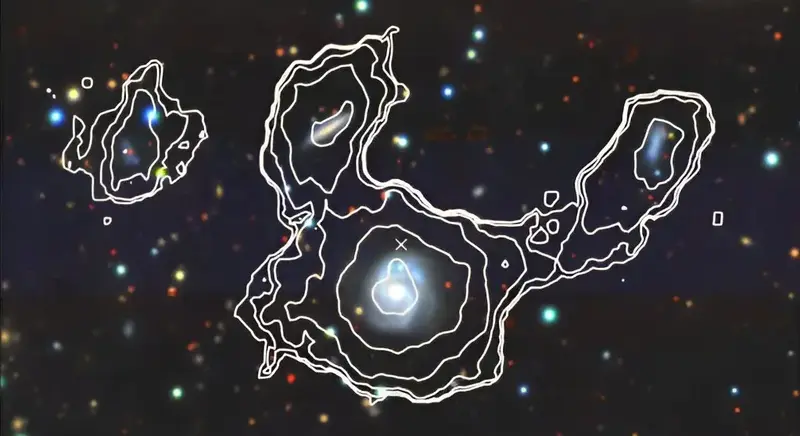Scientists discovered 49 new galaxies
- March 26, 2024
- 0
An international team of astronomers has discovered 49 new gas-rich galaxies using the MeerKAT radio telescope in South Africa. Their research has been published in: Monthly Notices of
An international team of astronomers has discovered 49 new gas-rich galaxies using the MeerKAT radio telescope in South Africa. Their research has been published in: Monthly Notices of

An international team of astronomers has discovered 49 new gas-rich galaxies using the MeerKAT radio telescope in South Africa. Their research has been published in: Monthly Notices of the Royal Astronomical Society. from Curtin University’s International Center for Radio Astronomy Research (ICRAR) in Western Australia. Marcin Glowacki led the study to examine the star-forming gas in a single radio galaxy. Although the team did not find any star-forming gas in the galaxy they examined, Dr. When Glowacki checked the data, he found other galaxies instead.
In total, gas from 49 galaxies was detected. Dr Glowacki said this was a great example of how amazing an instrument like MeerKAT is for finding star-forming gases in galaxies. Observations lasting less than three hours and carried out with the support of IDIA (Interuniversity Institute for Data Intensive Astronomy) made this discovery possible.
“I didn’t expect to find almost 50 new galaxies in such a short time,” he said. “By applying different galaxy finding techniques used in other MeerKAT surveys, we were able to detect all of these galaxies and determine their gas content.”
The New Galaxies were unofficially named the 49ers, in reference to the California gold rush miners of 1849. Dr. Glowacki believes the 49 new galaxies are as valuable as nuggets of gold in the night sky. Many galaxies are located close together and form galaxy groups; many of these are identified during a single observation.
The three galaxies are directly connected by their gas.
Dr Glowacki said: ‘These three are particularly interesting because by studying galaxies in other wavelengths of light we have found that many stars are forming in the central galaxy. “It is probably stealing gas from companion galaxies to fuel star formation, which could cause the other two to remain dormant.”
Professor Ed Elson, from the University of the Western Cape and co-author of the paper, said: “This discovery highlights the powerful power of the MeerKAT telescope as an imaging tool. The methods we have developed and applied to study the 49ers are useful for larger MeerKAT science studies and smaller observing ones like ours.” It will be useful for their campaigns.”
Dr. Glowacki recently discovered more gas-rich galaxies with the help of Jasmine White, a graduate student at ICRAR who worked with him and analyzed brief observations made by MeerKAT.
Dr. “We hope to continue our research and share further discoveries of new gas-rich galaxies with the broader community soon,” Glowacki said.
Source: Port Altele
As an experienced journalist and author, Mary has been reporting on the latest news and trends for over 5 years. With a passion for uncovering the stories behind the headlines, Mary has earned a reputation as a trusted voice in the world of journalism. Her writing style is insightful, engaging and thought-provoking, as she takes a deep dive into the most pressing issues of our time.